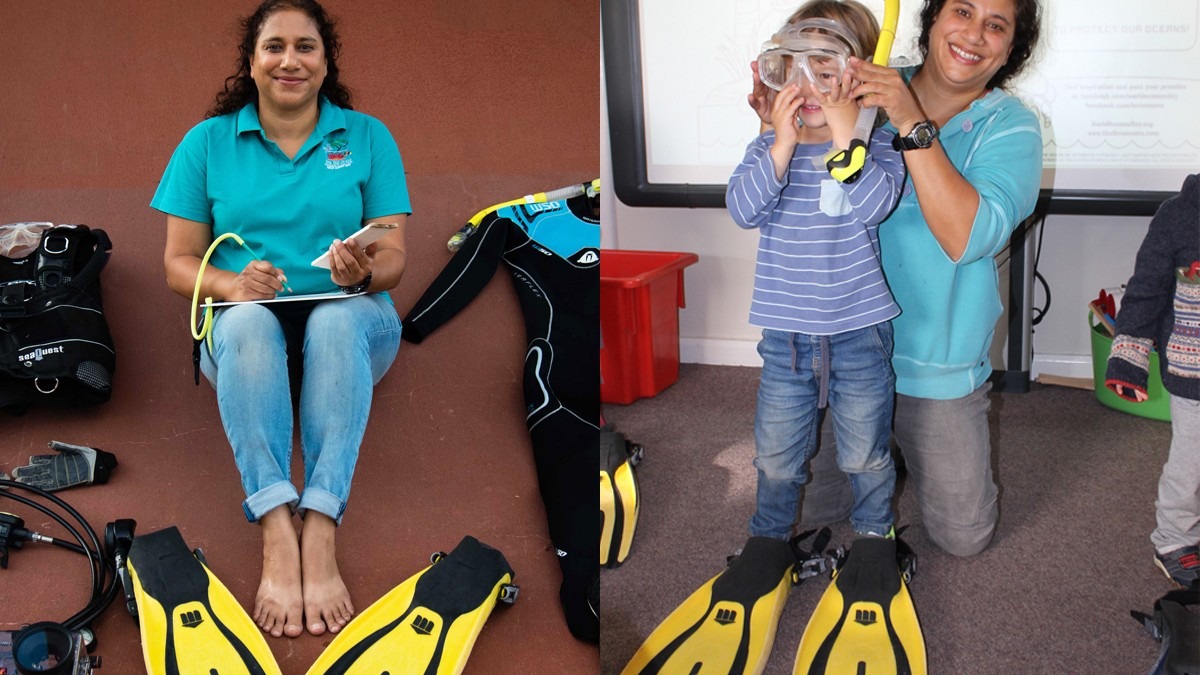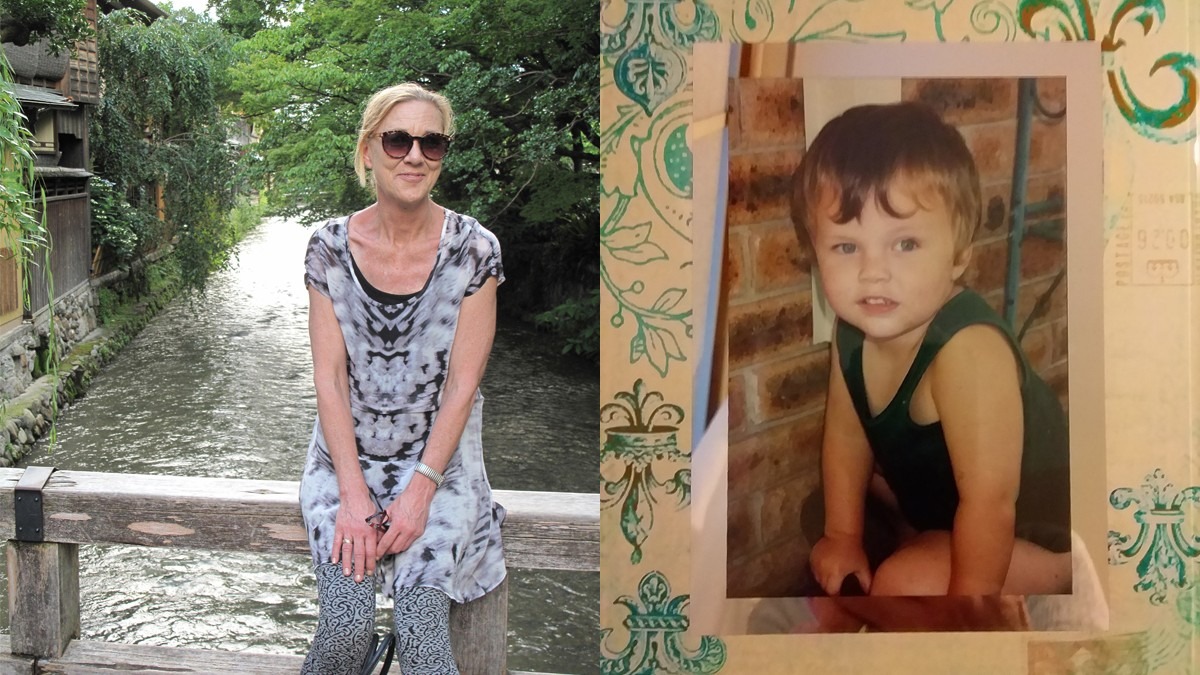The mothers of Science at ANU
This Mother’s Day we asked ten women from Science at ANU to share their experiences navigating parenthood and academia. Every story is one of great resilience and hope for a better system where parenthood and an academic career are not mutually exclusive.
“As a new parent, be patient and build support networks. Accept help if it is offered and have people you can rely on. With young children, your time will be limited. You will need to be more efficient during the day with fewer hours to devote to your work and research. My work as a researcher has allowed me to choose what I work on, which has in turn given me more flexibility with time.
It is important to create a culture where there is no negative professional stereotype associated to having children - a work culture that acknowledges that your ability to have kids and also operate at a high professional level.
Being aware of the constraints parents have and offering flexible work arrangements for all jobs are some of the things that help parents. Children can introduce different priorities, and supporting families is important.”
"I think when we ask the question of how better we can support mothers in academia, the first step is to ask women what they want! Working mothers are phenomenally efficient workers. Within a patriarchal system, we need to break through social norms and give mothers more options. Until you have a gender balance within the institutions, perspectives will be skewed towards the dominant group. It could range from providing guaranteed carparks to parents who do school drop-offs to allowing children in fieldwork. We need to consider a broader range of perspectives, different stories and role models.
I do a lot of fieldwork, which includes diving and snorkeling. I continued to swim and snorkel throughout my pregnancy until I couldn’t fit into my wetsuit. The Research School of Biology gave me a grant that allowed me to bring my son along to fieldwork. I was able to structure my own time and projects, which gave me the flexibility I needed."
"My advice is to ignore the sense that having a child is the wrong thing to do and to embrace the opportunity of doing both parenting and academia. The benefits of being both parent and researcher is the flexibility of time. Academia is a fantastic career for parents with young children. Having a child forces me to step back from my research and reflect on the bigger picture. Sometimes, that’s really what you need when you get caught up in the minutiae of research. The best parts of having children are definitely the cuddles, slowing down and seeing the world through their eyes.
The university’s new parental leave policy is fantastic, though increasing casualisation across the academic sector means that fewer women are able to access those entitlements. Increasing job security is probably the best way to help women, particularly those from backgrounds traditionally marginalised in academia such as Indigenous, LGBTQIA* and working-class women, to be mothers as well as academics."
"I thoroughly enjoy motherhood, and I always knew I wanted to be a researcher. The biggest challenge was trying not to feel guilty when spending time on work rather than being with the kids. Now, I am a grandmother! My children have long grown up and are now starting their own families.
How I balanced being a mother and academic is defining a work life balance and completely separating work and life. What worked for me was giving yourself very strict timelines, spending quality time when possible, parents working together as a team and maximising our [family] time together.
We could better support mothers by better supporting families through implementing more generous paid paternity leave. Parenting is a family concern that should be more normalised and accepted as one. Only by working as a team can parenting be much easier."
"For me, the experiences of being a mother and a researcher have fed into each other quite significantly, so much so that I’ve gotten to a point where it can be hard to distinguish where one experience starts and another one begins.
In the days of new motherhood, my experience as a researcher helped me to wade through the mountain of information on how to care for and raise a child. My field of research means plans can change very rapidly. This has helped me to “go with the flow” when taking care of a newborn. Being a mother has also given me another driver to research what I do. I want to make sure that the future my son grows up into is a lot more environmentally sustainable than the world I grew up in. Making sure we have enough water to support that future is critically important.
Balancing my academic research with being a mother can only be done with lots of support. My research has also taken me away from my son as I have to go out on field trips to collect new samples. This has meant missing out on several “firsts”. The culture at RSES allowed me to return from maternity leave when my son was 4 months old. I continued to care and breastfeed him via the available parenting room space, which made the transition much easier on both of us."
"After becoming a mother, love songs took on a whole new meaning. Becoming a mother wasn't really a struggle for me - I went with the "flow" and thoroughly enjoyed it. I had to manage expectations, not only my own expectations of newfound motherhood, but also expectations of others, including colleagues (particularly as maternity leave was "new" in those days). Rather than a strict, clinical focus upon time management, I allow joy and enthusiasm to take priority at times - in both work and family life.
Empowering people to do what they love, to find themselves and to have a rich life - these are the altruistic goals shared by parents and teachers. University researchers aim to engage others (whether it be colleagues or to-be colleagues) into the marvels that they've created, found, or interrogate. And that's also something that all parents try to do, in a nuanced way - think of the delights of parents & children upon that first encounter with butterflies, or how rattles work!
Regardless of profession, I think we can find many examples of altruism in our careers and relate them to parenthood."
"Workload has for me been the biggest challenge of being a mother and the biggest struggle I’ve experienced in my journey of motherhood. In balancing career and parenting, I’ve tended to work harder and longer to make sure everything gets done. In doing so, I’ve accepted there will be little ‘me’ time along the way. The advice I would give to my younger self is: Be prepared to work hard if you want a career and children. So, enjoy your life now, while you don’t have kids.
However, I certainly wouldn’t change anything about my life. Despite the challenges, raising my son has been the best experience of my life so far. Being a sole parent has definitely slowed down my career progression - probably by five to ten years. As a parent, you are always thinking you should be giving more time to your kids, so in practice, it is difficult to seek an acceptable balance.
Raising children is an extremely challenging, time-intensive vocation. These days many parents are raising their children without much family or other support. I think we could do more as a society to better support all mothers - whatever their work and/or home roles."
"I allocate my time as much as possible, which has been beneficial to both my family life and studies. When my children are in childcare I go to the office and focus on my PhD. When I am at home, I focus on my family and non-academic interests. I avoid bringing PhD work home. This has helped me value my time in the office even more which makes me more efficient and focused. When I am home, I can be fully present and not distracted by work, which makes it more special for me and my children.
We can better support mothers in academic research fields by having sufficient practical support structures in place. For mothers, challenges arise if there is a tension between balancing meeting the needs of their children and fitting into a workplace. Simple things like flexible work-hours, appropriate and accessible childcare, accessible parking options, contracts that do not penalise taking maternity leave, and other practical support along these lines, would be the best support for mothers."
"Academic careers are demanding, which can be difficult to balance with a young family. But, the flexibility of academic working hours is incredibly valuable when you have kids. There are loads of other great aspects, like being able to show your kids all sorts of interesting work and introducing them to lots of fascinating people.
To be honest, I don't think I'd change anything. As a working mother, it's very easy to feel guilty as to whether you're giving enough time to your kids, or whether you're giving enough time to your work. I look back on any particular year and remember the fun times I had with the family - I never look back and wish I'd done more work.
There are a million wonderful things. Being lucky enough to have three wonderful new little people in my life, who are funny and entertaining and curious - it's an absolute privilege, and often I look at them and can't quite believe they're mine.
I think some people assume that a mother will be less good as a scientist, especially if she's part-time. Hopefully that's an attitude that's changing as increasing numbers of women successfully combine science and motherhood, but the more visibility the issue gets, the better! However, it is great to see is increasing numbers of fathers sharing parental care and going part-time."
"I would like to believe that it’s more about providing support to academics and researchers who are parents. It seems that, unfortunately, we often view time away raising children is something that inhibits your career prospects. Becoming, and being a mother, means that you have resilience and courage. That you are able to prioritise workloads and manage multiple tasks, and involves amazing negotiation skills, people management and patience. These skills are just as relevant in the workplace as they are at home, and it would be wonderful if they were recognised and celebrated in that way.
Whenever friends or colleagues ask me what it’s like to be a mother, I say it is the absolute best and worst thing that will happen to you, all at once, multiple times a day. Having children is an experience I believe no one can truly do justice with words. As cliché as it sounds, motherhood really is something no one can prepare you for.
The best part is simply, them. Creating a person and watching them grow. Being truly fascinated by their stories of what picture they drew, what they ate for morning tea, and the feelings of pride and joy when you watch them treat others with kindness. All the while falling completely in love with them over and over again.
The hardest part is simply, well, them. Having children means you become a whole new version of yourself. A version of you that never thinks of themselves first. If they need you, you drop everything (even sleeping and eating) to ensure their safety and well-being. That’s being a mother. It is the ultimate way of paying it forward. Spread love to your children, encourage them to become people that inspire and enjoy life. Let them challenge the world, develop their own ideas, love deeply, and show curiosity. One day, perhaps they will do the same for their own children.
That journey is worth everything."










